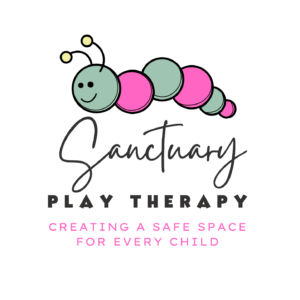
Frequently Asked Questions
What is Play Therapy?
Play Therapy is a developmentally appropriate form of counselling for children, where the child has the opportunity to use “play” to process and explore their inner thoughts, worries and feelings. Play therapy is to children what counseling is to adults; play is a child’s natural medium of expression, which helps children express their feelings more easily through toys instead of words.
Who is Play Therapy Beneficial For?
Play Therapy can be beneficial for children who are experiencing a range of presenting concerns, including social, emotional or behavioural challenges. Children may also come to Play Therapy if they are experiencing problems with friends, at school or at home. Play Therapy is most a appropriate for children aged 3-13 years of age. Play is a natural way for children to explore their world and it has the power to heal; “just playing” can be very cathartic for the child. This type of Therapy is child-led, which gives the child the opportunity to “play out” whatever they are experiencing in a safe, natural medium.
How do I explain Play Therapy to my child?
At Sanctuary Play Therapy we help parents and caregivers decide on how they explain to their child why they are going to Play Therapy. We work together with parents to help them find a clear explanation that hopefully helps soothe their child’s potential anxiety of the “unknown”and helps ease their worries. We provide a Social Story for parents and caregivers which visualises to children what to expect, which also helps the parent and caregiver.
How does Play Therapy differ from other types of therapy?
Play Therapy is a form of therapy that is specifically appropriate for young children. It differs from other therapies in that a child’s play acts a vechicle for change; through the therapeutic powers of play and the therapeutic relationship, children are able to explore their feelings and experiences in a safe and permissive environment.
In the Playroom, your child will initially spend the first few sessions, exploring the playroom, its toys and play materials. They may ask questions, try new things and may even test boundaries. They will play with a variety of toys that allow self expression. Your child will begin to develop comfort and trust with the Play Therapist and begin to build a connection with the Play Therapist which is necessary for further therapeutic work to commence. Your child will be accepted totally with unconditional positive regard which allows your child to “play out” what they need to in the safety of a structured and predictable environment.
Can I come into the Playroom?
Children usually attend Play Therapy sessions on their own, however, it is important that you stay close to the Clinic in the waiting area. It is important that your child knows that you are close by which creates a sense of safety. When Play Therapists begin to work therapeutically with your child, they establish and develop a therapeutic relationship that includes confidentiality. A Play Therapist is sensitive to maintaining the child’s confidentiality, therefore parents and caregivers will be updated about how your child is progressing periodically. You are most welcome to ask any questions or share concerns with the therapist.
How many sessions of Play Therapy are required before I notice a difference in my child’s behaviour?
Every child is unique in their presentation and engagement with Play Therapy and will progress through the therapy process at their own pace. There are typically four stages of the therapeutic process. The time spent in each stage depends on the child’s therapeutic needs. At Sanctuary Play Therapy, children attend weekly Play Therapy sessions which are 50 minutes in duration. The overarching goal of Play Therapy is not to solve the presenting concerns, but rather the therapeutic relationship and therapeutic powers of play which facilitate growth and healing in the child. Parents and caregivers may notice changes and shifts in the child’s behaviours at home or other settings. The Play Therapist will keep you updated on new “shifts” they observe in the Playroom.
How will I know my child is progressing in therapy?
At Sanctuary Play Therapy, an initial parent consultation will be arranged at the beginning of our therapeutic work together. During this initial parent consultation, we will discuss presenting concerns and gather developmental history. Throughout the Play Therapy process periodic parent consultations with your child’s Play Therapist will take place every 5-6 sessions. These catch ups should take place ideally in absence of the child. We encourage parents and caregivers to try refrain from asking their child too many questions about their play therapy sessions. If you were to ask, “was it fun?” or “what did you play?”, the child may have in fact been processing some difficult emotions in his play and may experience feelings that he/she should have had fun.
Further Research
Research and Evidence Based Research for Child Centred Play Therapy
